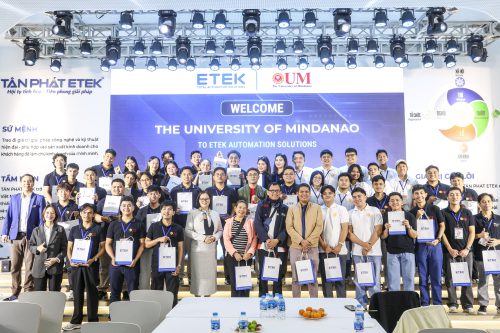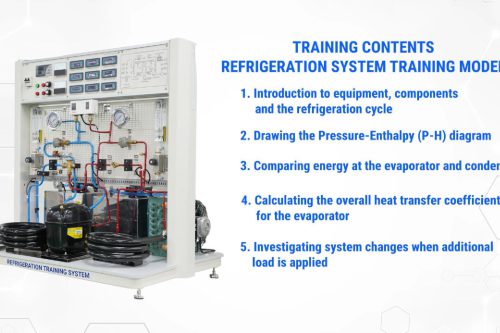Distributed Control System (DCS) Laboratory – Basic and Advanced Process Control Training for Universities and Technical Colleges Nationwide
The Faculty of Electrical Engineering at Hanoi University of Industry offers high-quality programs in electrical engineering and technology to meet the growing demand for skilled professionals in the field. With a team of experienced lecturers, the faculty provides in-depth training at both undergraduate and postgraduate levels.
The faculty also supports students in conducting research projects and internships at enterprises, enabling them to apply theoretical knowledge to practical scenarios. Various extracurricular activities further enhance students’ skills and networking opportunities. Currently, the Faculty of Electrical Engineering is a leading institution in training electrical and electronic engineers to meet the demands of the labor market.
ETEK Automation Solutions JSC, with 16 years of experience in automation solutions for factories and technical training equipment for educational institutions, has always fulfilled its role as a trusted partner, delivering high-quality and reputable products.
Through this collaboration, ETEK and the Hanoi University of Industry have worked on various initiatives, including designing a DCS laboratory for practical training and advancing the educational goals of the Faculty of Electrical Engineering.
In addition, the laboratory must provide a safe learning environment, comprehensive equipment, and clear safety instructions. It should also encourage interactive learning and problem-solving to simulate real-world work scenarios.
After receiving the faculty’s requirements, ETEK quickly devised and implemented a comprehensive plan, including idea development, continuous reviews, and finalizing the solution in collaboration with stakeholders.
ETEK designed a Distributed Control System (DCS) for the laboratory, capable of controlling various processes, including production lines and dynamic systems. Unlike centralized systems, DCS distributes control tasks across multiple controllers, enhancing efficiency and flexibility.
The DCS laboratory accommodates various courses and provides hands-on experience with technologies commonly used in industries such as food and beverage processing, oil and gas, water treatment, and manufacturing. These fields align with the career paths of electrical engineering graduates.
After numerous consultations and refinements, ETEK’s professional engineering team delivered a fully functional DCS Training Laboratory tailored to the needs of the Faculty of Electrical Engineering. The lab provides an interactive learning environment for both students and lecturers, enabling hands-on training, research, and teaching.
This state-of-the-art facility aligns with industry standards and prepares students to excel in real-world automation and process control roles.


